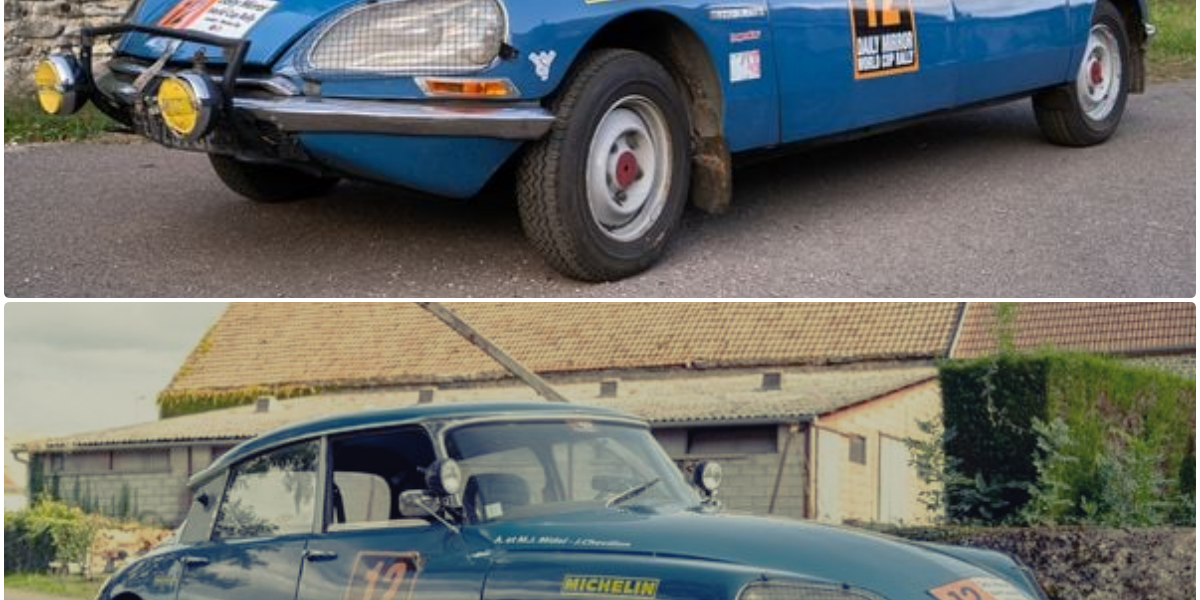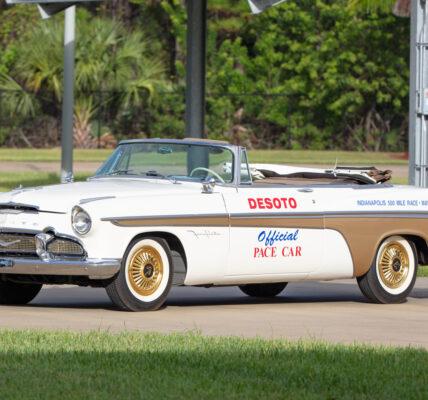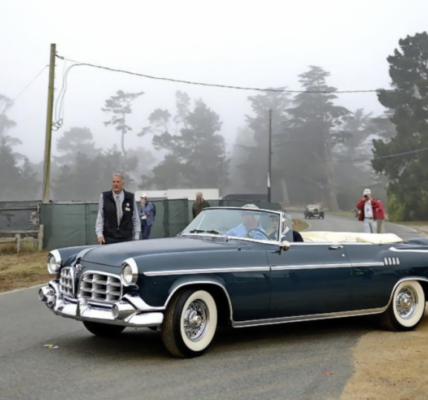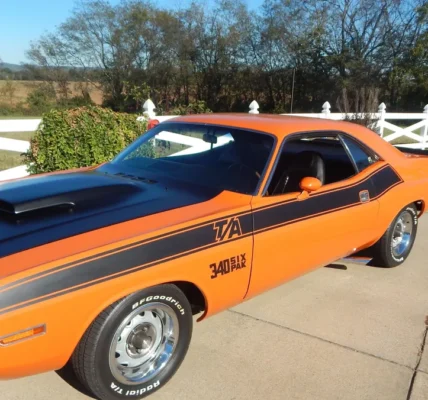- Homepage
- Classic Car
- 1970 Citroen DS 21 (1970 World-Cup Rally No.12)
1970 Citroen DS 21 (1970 World-Cup Rally No.12)
The 1970 Citroën DS 21, especially car No. 12 in the 1970 World Cup Rally, is a prime example of Citroën’s unconventional design paired with the DS’s renowned road handling and ruggedness. This rally car, driven by Bob Neyret and Jacques Terramorsi, took on the grueling, near-16,000-mile journey from London to Mexico City, a route that challenged even the toughest of vehicles. Known for its unique suspension and forward-thinking engineering, the DS 21 earned a special place in rally history for its performance and resilience in such a demanding event.
Engineering and Performance
The DS 21 featured Citroën’s advanced 2.1-liter inline-four engine, producing around 115 horsepower. While modest by modern standards, this engine provided ample torque and reliable performance, well-suited for the long-distance endurance required in the World Cup Rally. The rally-spec DS 21 was modified to handle rough terrain, with reinforcements to its engine, transmission, and suspension to endure extended high-speed driving over unpredictable surfaces.
One of the DS’s standout features was its hydropneumatic suspension, which gave it a significant advantage in rallying by automatically adjusting the car’s height. This allowed the DS 21 to glide over rough roads with remarkable stability, making it adept at handling the rugged conditions of the London-to-Mexico route. The car’s front-wheel drive also gave it good traction, a valuable asset on loose surfaces, and its relatively light weight helped it maintain decent speeds over long stretches.
Rally Modifications and Design
The rally-prepared DS 21 No. 12 sported a distinctive look, with additional lighting, roll bars, a reinforced front end, and a larger fuel tank to accommodate the vast distances between fuel stops. For protection against the harsh environment, including sand, mud, and rocks, it had re inforced underbody guards, upgraded tires, and reinforced wheel arches.
Inside, the rally-spec DS 21 was stripped of unnecessary features to reduce weight. Essential gauges and controls were arranged for easy use, and racing seats and harnesses kept the driver and co-driver secure. With the large dashboard and unusual steering wheel placement characteristic of Citroën, the DS cockpit was unconventional but functional, with everything configured for driver accessibility and endurance.
Legacy and Performance in the 1970 World Cup Rally
Though not as high-powered as some competitors, the DS 21 relied on its comfort, durability, and the unique suspension that helped it take on diverse terrains without the same level of fatigue experienced by other rally cars. The Citroën DS 21 finished the rally, although it did not place at the very top, which was a testament to its engineering and the team’s skill. The car’s ability to endure and remain competitive in such a brutal rally helped reinforce the DS’s legendary reputation.
Enthusiast Appeal Today
The 1970 Citroën DS 21 rally car remains an icon among Citroën fans and rally enthusiasts, embodying both the quirks and brilliance of Citroën engineering. Its sleek, aerodynamic body, combined with the advanced suspension and innovative design, has made it a collector’s item. Restored versions of the DS rally cars are popular at vintage rallies, where fans can see the DS 21 perform as it was meant to—gliding smoothly over rough terrain with an elegance that few cars can match.





















































































